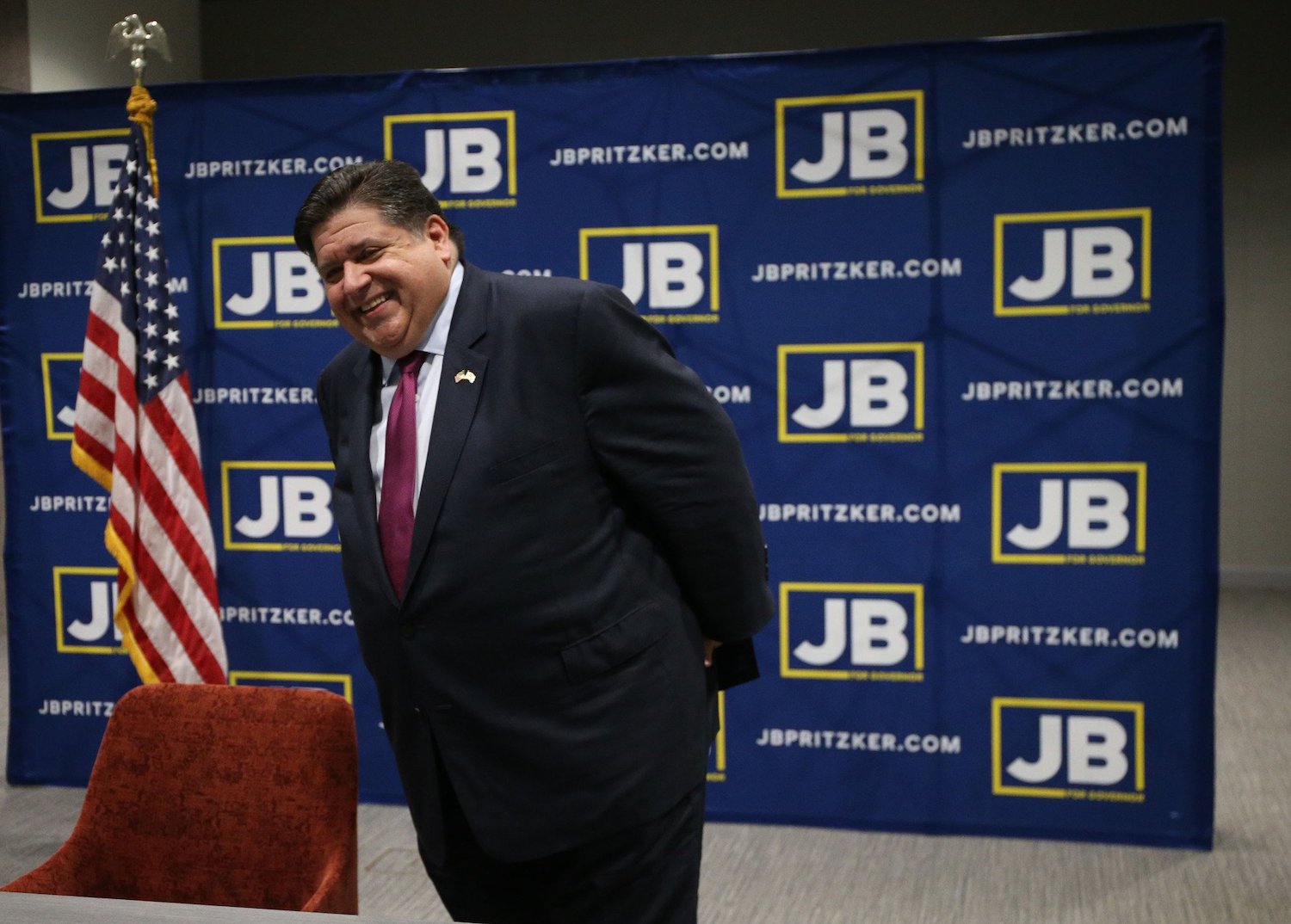The 2018 Illinois governor’s race was the most expensive statewide election in American history. J.B. Pritzker, a billionaire, and Bruce Rauner, a multi-millionaire, spent nearly $300 million between them for the privilege of running a shrinking state with $7 billion in unpaid bills and a junk credit rating. POLITICO called the prize “The Worst Job in American Politics,” and asked, “Why does J.B. Pritzker, or anyone, want to be governor of Illinois?”
Well, Pritzker wants to be governor for another four years. He just gave his campaign $90 million, which is 2.5 percent of his $3.6 billion fortune. His arch-nemesis, investor Ken Griffin, the wealthiest man in Illinois (net worth: $28 billion), then upped the ante. In 2020, Griffin spent $53.8 million to defeat Pritzker’s proposal for a graduated income tax. This year, sources say, he’s prepared to spend up to $300 million to defeat Pritzker himself. Griffin once spent that much on a painting by Willem de Kooning, so why not a governorship, too?
What does this potlatch-like spending mean? It means this year’s governor’s race will be even more expensive than 2018. It also means you have to be a billionaire to run the state of Illinois, or decide who does. Our experience may represent the future for the rest of America. We now live in an era of billionaire politicians. Pritzker is the wealthiest statewide official in American history. He’s one of two sitting billionaire governors, along with Jim Justice of West Virginia. Billionaires Bill Haslam governed Tennessee from 2011 to 2019 and Mark Dayton governed Minnesota during the same period. Our last president, Donald Trump, also claimed to be a billionaire.
“The early success of billionaire candidates was on the Republican side,” Brookings Institution scholar Darrell M. West, author of Billionaires: Reflections on the Upper Crust, told me in 2018. “But Democrats have taken notice of the fact that billionaires have been successful, and each party has adopted a policy of adopting a billionaire.”
We are living in an era of inequality unseen in nearly a century. As more and more money is gathered into fewer and fewer hands, power is naturally following. According to a 2017 article in the Chicago Booth Review, the top .01 percent of earners — which would include the nation’s 745 billionaires — took home 5 percent of the nation’s income, up from .5 percent in 1973. The pandemic has made inequality even worse: over the last two years, American billionaires have increased their wealth by 70 percent, or $2.1 trillion. No wonder they’re the only ones who can afford statewide campaigns.
As John Jackson of the Paul Simon Public Policy Institute at Southern Illinois University told Governing magazine, “The number of billionaires and mega-millionaires [in politics] is absolutely unprecedented.”
Griffin is said to be a fan of Aurora Mayor Richard Irvin, the only Republican candidate for governor who’s not from Downstate Trumpland. He’ll probably be wasting his money, even by supporting the kind of moderate who has won for Illinois Republicans in the past. (Unless his goal is to take complete personal control of the Illinois Republican Party. Then he’s not wasting his money.) Here are the results of a Victory Research poll of 1,208 likely voters, conducted from January 18-20:
Has Governor Pritzker earned another term in office?
Yes: 51.7%
No: 43.3%
Undecided: 5%
Head-to-head matchups:
Pritzker 52.4% vs. Gary Rabine 28.4%
Pritzker 55.2% vs. Darren Bailey 27.4%
Pritzker 53.1% vs. Jesse Sullivan 22.4%
Pritzker 55.5% vs. Paul Schimpf 22.2%
Pritzker 53.1% vs. Richard Irvin 21.6%
Pritzker was not expected to be a strong governor. Four years ago, he was seen as a wealthy dilettante who was going to Springfield to sign whatever House Speaker Michael Madigan, the real boss of Illinois, set on his desk. At the outset of the COVID-19 crisis, though, Pritzker showed his mettle as a leader by holding daily news updates from the Thompson Center, then shutting down schools, bars, and eventually the entire state. He’s now a popular, respected figure in Illinois. He only had the chance to prove himself, though, because he was born with billions of dollars.




